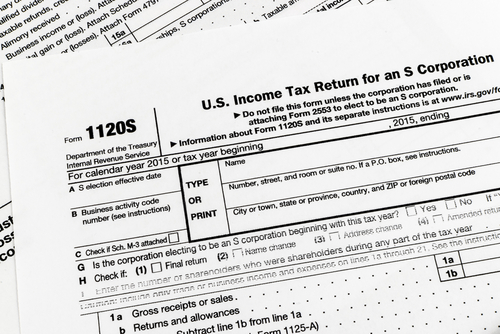Key Deadlines and Requirements for S-Corp Tax Filings: A Year-Round Guide

Tax season can be a stressful time for many business owners, especially those who operate as S-Corporations. S-Corps are a popular business structure for small to medium-sized companies due to their tax benefits and flexibility. However, navigating the ins and outs of S-Corp tax filings can be complex and daunting. In this comprehensive guide, we will outline the key deadlines and requirements for S-Corp tax filings to help you stay organized and compliant throughout the year.
Understanding S-Corporation Tax Basics
Before diving into the specific deadlines and requirements for S-Corp tax filings, it is crucial to have a basic understanding of how S-Corporation taxes work. Unlike C-Corporations, which are subject to corporate income tax, S-Corporations are pass-through entities. This means that the business itself does not pay taxes on its profits; instead, the profits are “passed through” to the shareholders, who report the income on their personal tax returns.
S-Corporation shareholders are required to pay taxes on their share of the company’s income, regardless of whether the income is distributed as dividends or retained by the business. This unique tax structure has its advantages and challenges, making it essential for S-Corp owners to stay informed about their tax obligations and deadlines.
Important Deadlines for S-Corp Tax Filings
S-Corporations are required to file various tax forms and documents with the IRS and state tax authorities throughout the year. Missing deadlines can result in penalties, fines, and other consequences, so it is crucial to stay on top of these key dates. Here are the important deadlines for S-Corp tax filings:
March 15: S-Corp Tax Return (Form 1120S) Due Date
One of the most critical deadlines for S-Corporations is the deadline for filing the annual tax return, Form 1120S. S-Corp tax returns are due on March 15 for calendar year filers. This form reports the company’s income, deductions, credits, and other relevant tax information for the previous year. It is essential to ensure that all necessary documentation and financial records are organized and accurate to complete the tax return on time.
March 15: Schedule K-1 Distribution Deadline
In addition to filing the S-Corp tax return, S-Corporations are required to provide each shareholder with a Schedule K-1 (Form 1120S) by March 15. The Schedule K-1 reports each shareholder’s share of the company’s income, deductions, credits, and other tax-related information. Shareholders use this form to report their S-Corp income on their personal tax returns.
January 31: W-2 and 1099-MISC Filing Deadline
S-Corporations must also meet the deadline for filing employee W-2 forms and issuing 1099-MISC forms to vendors and contractors. The W-2 forms report employees’ wages, taxes withheld, and other compensation details, while the 1099-MISC forms report payments made to contractors and other non-employee service providers. The deadline for filing these forms is January 31 each year.
Quarterly Estimated Tax Payments
Throughout the year, S-Corporation shareholders are required to make quarterly estimated tax payments to cover their tax liabilities. It is essential to calculate these payments accurately based on the company’s income, deductions, and credits to avoid underpayment penalties. The due dates for quarterly estimated tax payments are April 15, June 15, September 15, and January 15 of the following year.
Ongoing Compliance Requirements for S-Corp Tax Filings
In addition to the key deadlines outlined above, S-Corporations must also adhere to ongoing compliance requirements to maintain their tax-exempt status and avoid potential issues with the IRS. Here are some essential considerations for S-Corp tax filings:
Maintaining Proper Records
S-Corporations are required to keep accurate and up-to-date records of their financial transactions, income, expenses, and other relevant information. Good record-keeping practices are essential for preparing tax returns, responding to IRS inquiries, and ensuring compliance with tax laws and regulations.
Correctly Classifying Shareholder Distributions
It is crucial for S-Corporations to correctly classify shareholder distributions as either salary or dividends. Shareholders who provide services to the company are considered employees and must receive reasonable compensation in the form of a salary subject to payroll taxes. Any excess profits can be distributed as dividends, which are taxed at a lower rate.
Maintaining Corporate Formalities
S-Corporations must adhere to certain corporate formalities to maintain their tax-exempt status and protect the limited liability of the shareholders. This includes holding annual meetings, documenting major business decisions, maintaining corporate records, and following other legal requirements for S-Corporations.
Hiring a Tax Professional
Navigating the complexities of S-Corporation tax filings can be challenging, especially for business owners with limited tax knowledge and expertise. Hiring a qualified tax professional, such as a certified public accountant (CPA) or tax attorney, can help ensure that your S-Corp taxes are filed accurately, timely, and in compliance with relevant laws and regulations.
Summary
Staying on top of key deadlines and requirements for S-Corp tax filings is essential for maintaining compliance, avoiding penalties, and maximizing tax savings for your business. By understanding the basics of S-Corporation taxes, noting important deadlines, and adhering to ongoing compliance requirements, you can ensure that your S-Corp remains in good standing with the IRS and state tax authorities throughout the year.
Remember to keep detailed records, accurately classify shareholder distributions, maintain corporate formalities, and consider seeking professional tax advice when necessary. With proper planning, organization, and attention to detail, you can navigate the complex world of S-Corporation tax filings and set your business up for long-term success and growth.
Need an Accounting Firm in Litchfield Park, AZ?
Priscilla A. Chesler CPA PC is a full-service accounting firm that offers highly personalized solution for your business, nonprofit or organizations. Priscilla gets to know client businesses in depth, often onsite, to ensure she can offer guidance and services that fit the needs of the organization. Her expertise and knowledge of tax law and best accounting practices are always current. Contact her today to learn more about what she can do for you!
